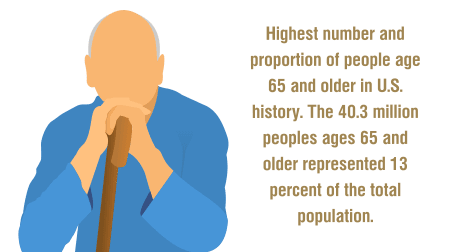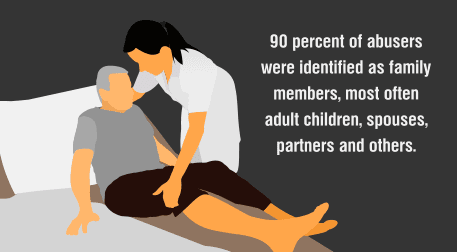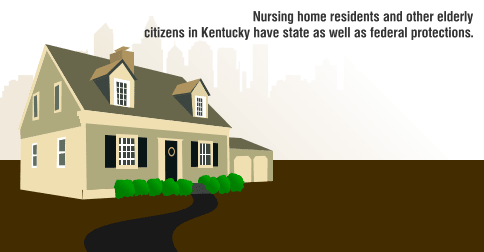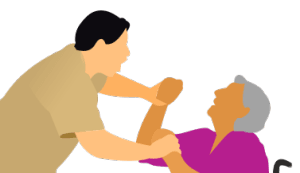Did you know that elders who have been abused are 300% more at risk of death? Or that one in ten Americans over the age of 60 have experienced abuse? The National Council on Aging says approximately 5 million elders are abused each year, and only one in 24 cases are ever reported.
The National Center on Elder Abuse (NCEA) says that the last Census recorded the highest number and proportion of people aged 65 and older in U.S. history. The 40.3 million people ages 65 and older represented 13 percent of the total population. By 2050, people aged 65 and older are expected to make up 20 percent of the U.S. population. The fastest-growing segment of America’s population consists of those 85 and older.

As our loved ones age, they become increasingly dependent on others. Unfortunately, this makes them vulnerable to abuse and neglect at the hands of people entrusted to care for them. Elder abuse and neglect are intentional actions that cause harm or create a serious risk of harm to a vulnerable elder by a caregiver or other person who stands in a relationship of trust. This includes failure by a caregiver to satisfy the elder’s basic needs or to protect the elder from harm.

In the only national study that attempted to define the scope of elder abuse, approximately 90 percent of abusers were identified as family members, most often adult children, spouses, partners, and others. Family members who abuse drugs or alcohol, who have a mental/emotional illness, and who feel burdened by their caregiving responsibilities abuse elderly relatives more often than those who do not.
Two studies cited by the NCEA indicate that people with dementia are at greater risk of elder abuse than those without. Approximately 5.1 million American elders over 65 have some kind of dementia. In 2010, about 42 percent of individuals living in residential care communities had Alzheimer’s disease or other dementia, according to the Centers for Disease Control and Prevention and the National Center for Health Statistics. In 2010, fewer than 2 out of 10 residential care communities had dementia special care units, and nursing home beds in dementia special care units accounted for 13 percent of all residential care beds.
Kentucky is a leader among U.S. states in how it tries to treat the elderly, particularly those who are in nursing homes and similar long-term care facilities. Nursing home residents and other elderly citizens in Kentucky have state and federal protections. Unfortunately, the statistics show that this protection is very much needed but far from seamless.

According to the Kentucky Cabinet for Health and Family Services 2020 Elder Abuse Annual Report, the Kentucky long-term care ombudsman program (LTCOP) received 6,777 complaints regarding the care of nursing home residents. The complaints led to 4,326 open cases related to the quality of care and quality of life concerns.
The same report says that in 2020, there were 1397 substantiated reports of abuse or neglect among Kentuckians age 60 and older. They included:
 102 cases of adult abuse
102 cases of adult abuseElderly abuse is more likely to occur in the senior’s home or in the home of a relative than in institutional settings like nursing homes, according to the Kentucky Cabinet for Health and Family Services. The majority of vulnerable elders live with relatives acting as primary caregivers.
Relatives of elderly victims account for most cases of intentional abuse. Reports of intentional abuse often come from neighbors, home health providers, or hospital workers who notice signs of mistreatment, Health and Family Services says.
Older adults who are victimized by violence have more health care problems than other older adults, including increased bone or joint problems, digestive problems, depression or anxiety, chronic pain, high blood pressure, and heart problems, the NCEA says. Elders who experienced even modest abuse had a 300 percent higher risk of death when compared to those who had not been abused.

The direct medical costs associated with violent injuries to older adults are estimated to add over $5.3 billion to the nation’s annual health expenditures, according to the American Journal of Public Health. If you suspect that an elderly loved one has been a victim of abuse or neglect, contact our personal injury attorneys. We focus on cases of nursing home neglect and abuse for assistance.